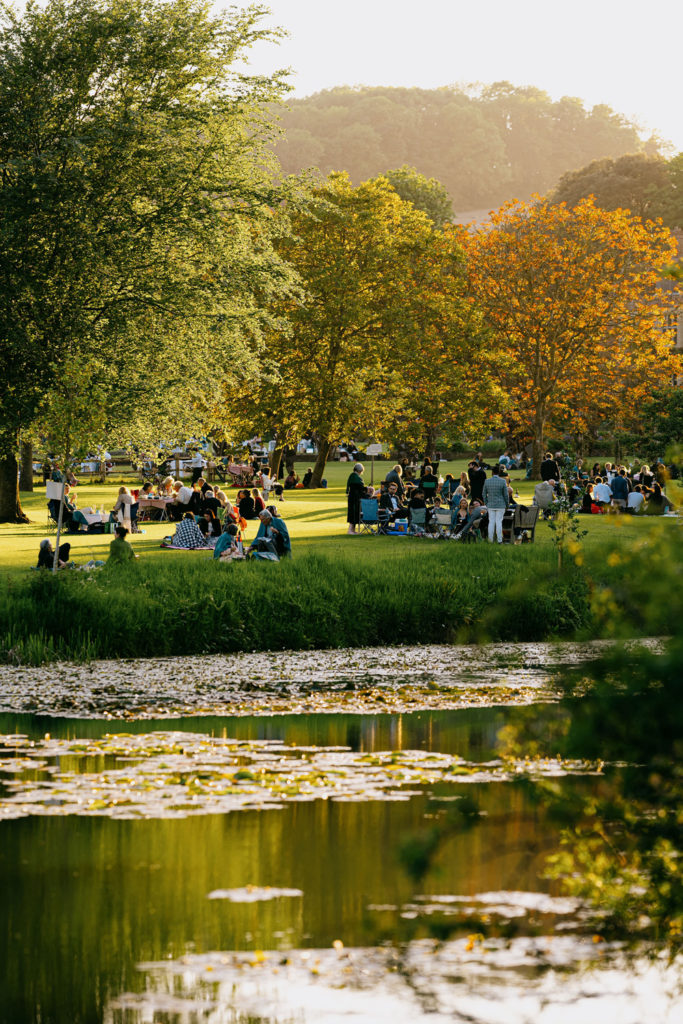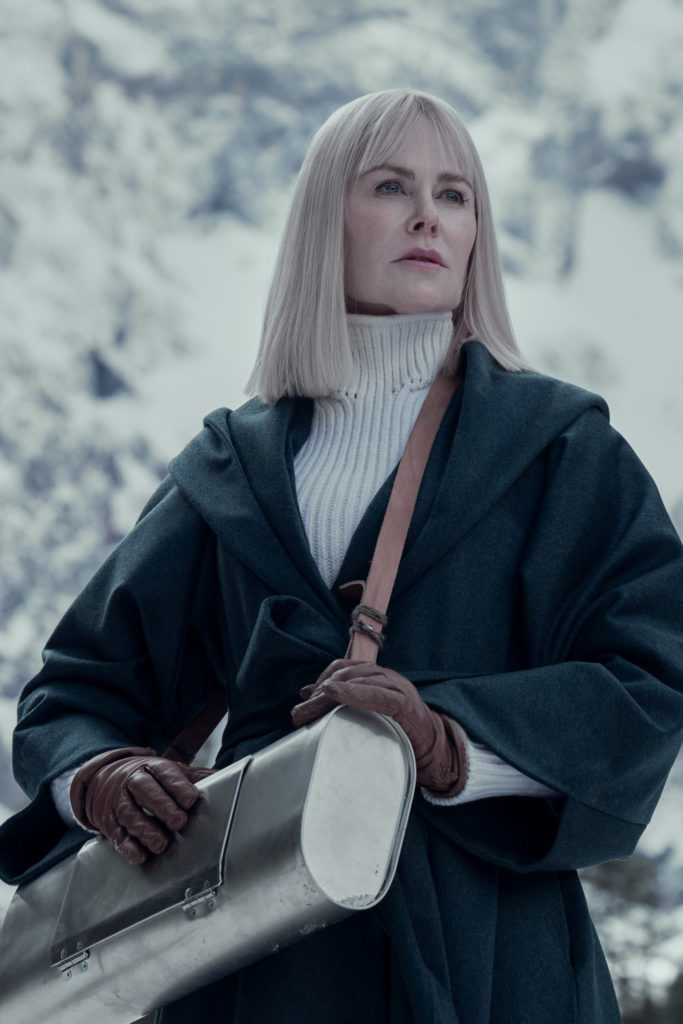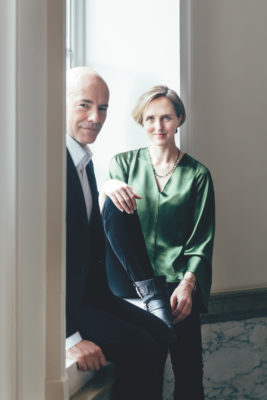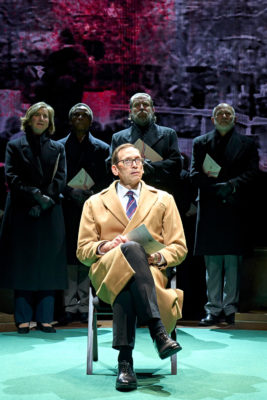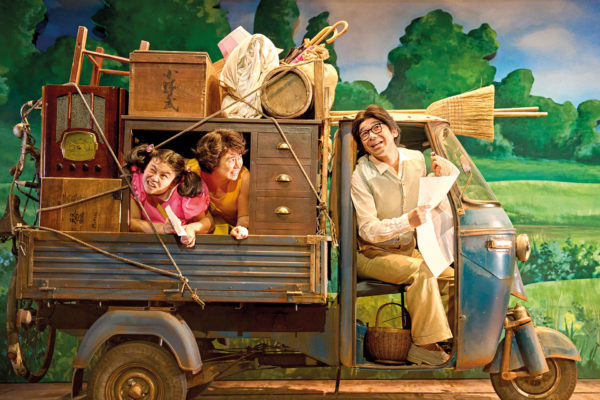‘The King Of The RSC, Playing A King At The RSC’ – Daniel Evans & Raggett On Edward II
By
2 months ago
For his first stage role in 14 years, RSC Artistic Director Daniel Evans takes on the complex role of Edward II, a gay king whose reign was marked by controversy. In conversation with director Daniel Raggett, they discuss the play's exploration of identity, leadership, and the sacrifices demanded by power.
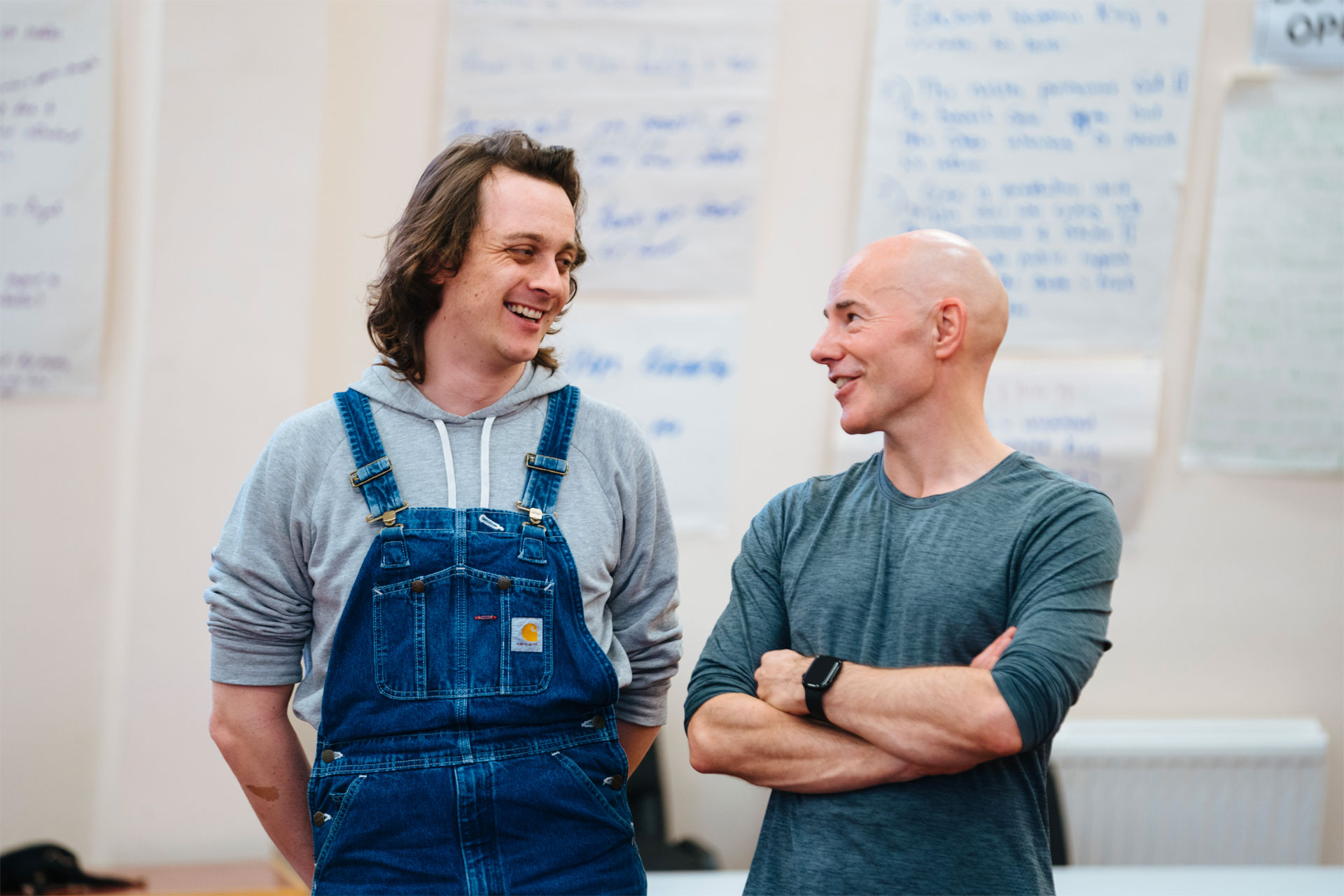
How does a leader balance personal identity with public duty? The RSC’s Edward II examines this through the lens of a gay king. We sat down with director Daniel Raggett and Daniel Evans about the production – a play by Marlowe originally published in 1592 – as they finish rehearsals in London, ahead of tech-runs in Stratford-Upon-Avon.
Interview: Daniel Evans & Daniel Raggett on the RSC’s Edward II
Key: Daniel Raggett (DR), Daniel Evans (DE), C&TH
How are you feeling about moving the play to Stratford Upon Avon?
DR: It’s super weird. We’re feeling a lot of time pressure in the room, but we still have another week of rehearsals, then tech, then previews before our opening night. If you go back a month from where we are now, we were still doing exercises in the rehearsal room, playing games and getting to know each other.
And talk to me about why you’re doing the play? Why you – why the RSC?
DR: That’s a really good question. I can talk to you about how I met Daniel to begin with. When I was starting out, I directed a play at a small theatre that no longer exists called The Gate—or it no longer exists where it used to in Notting Hill Gate. At that point, I’d done a lot of assisting work, but you sort of write to a lot of directors and say, ‘Would you please come and see my work?’ And Daniel was one of the only ones who actually turned up and watched it. And then he said – kindly, because it was deeply imperfect – but he said, ‘I really like it.’
At the time, he was running Chichester and said, ‘I would like you to do a play there.’ That led to years of discussions, and then we finally landed on a play in his final season. That’s where we really spent most of our time together. Out of that came the conversations around this, which was partly your curiosity about wanting to get back on stage after 14 years. And also, I think we both have quite a love for discussing theatre and plays. We talked around a few things and kept coming back to this.
I think – not to talk for you – but I found it really interesting that someone who had just taken over as the leader of an organisation was playing a king. The king of the RSC playing a king at the RSC.
But also, I always think the best theatre is a kind of triangle between populism, politics, and art. I’d never heard of Edward II – I knew the Derek Jarman film a little – but this definitely spoke to the ‘why this, why now?’ question. And when you consider a gay man taking over a significant role in a major arts organisation, leadership and queerness, and how those things intersect—it just kept coming up. And now it’s happening.
DE: There was an interesting question you asked – what would happen in our country if suddenly Charles, or any monarch who had just ascended to the throne, came out? Initially, we thought, ‘Oh, everyone would be fine.’ But actually, when we thought more deeply about it, we weren’t so sure.
Think about the elements of the play – the right-wing press, civil war – and it made us wonder how that would play out in a contemporary context.
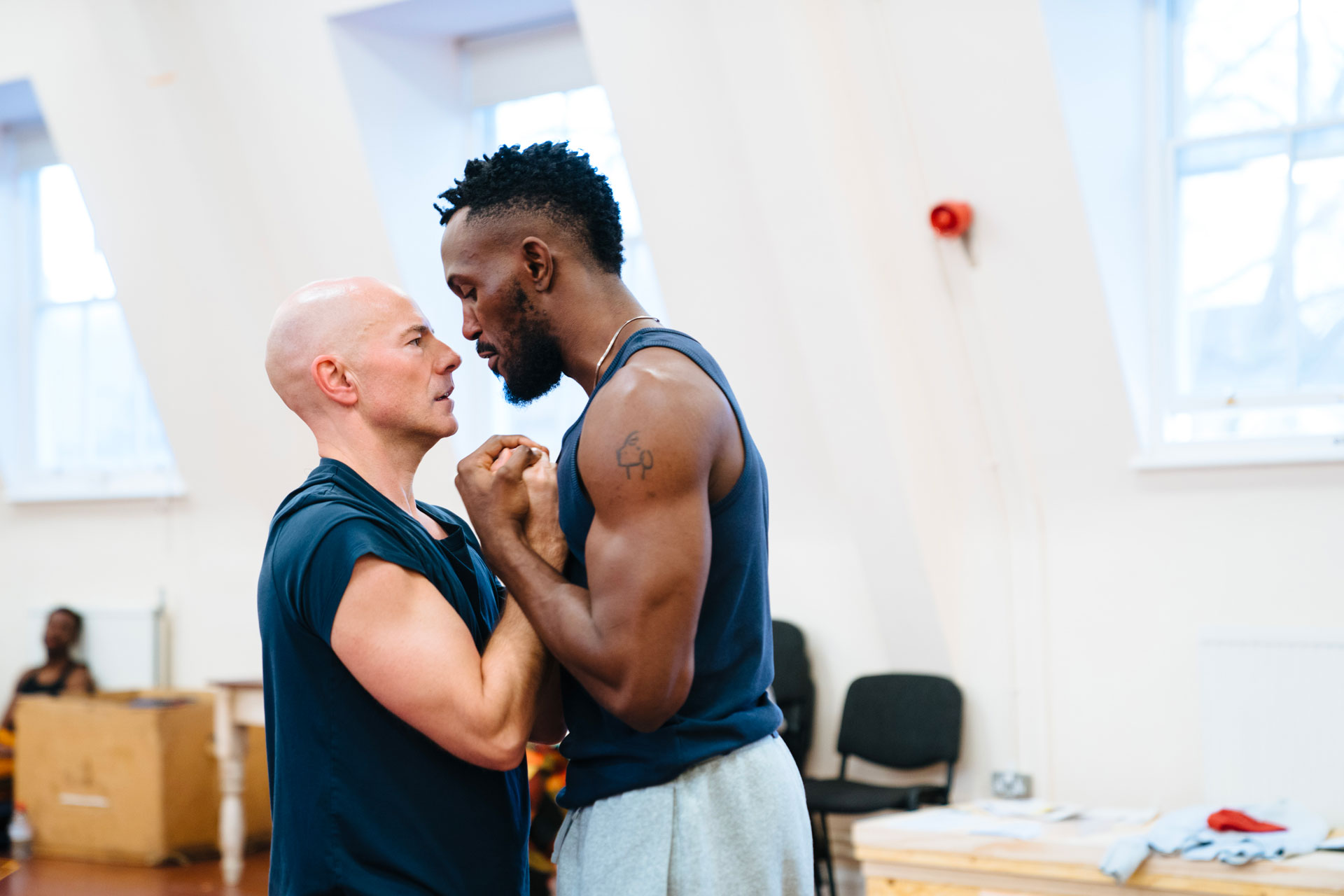
Daniel Evans (L) and Eloka Ivo (R) who play lovers Edward II and Gaveston © RSC, photos by Helen Murray
Let’s talk about queerness in the play. At the time of writing, it’s pretty radical to represent this. Is it still as radical today?
DR: I don’t know how much we can talk about this, but – something interesting happened yesterday. There’s a bit at the end of the play – no spoilers – where Edward III takes over, and one of the first things he does is kill Mortimer. We have children in the room, and a chaperone with them. They were fine with the child slitting someone’s throat. But then we moved on to a scene where Daniel had to straddle Edward – two men touching sexually – and the kids had to leave the room.
Would it have been the same if it were a straight couple? I don’t know, but I think people are still uncomfortable seeing that.
DE: We also still haven’t had an openly gay Prime Minister. There’s never been a Best Actor Oscar winner who was publicly gay. The play taps into the intersection of leadership and queerness, and unfortunately, 400 years later, it’s still othered.
DR: The other thing I realised only yesterday is that the play’s question is sort of: is Edward a bad king who happens to be gay, or is he a bad king because he’s gay?
There’s this other play I’m working on which is about an unequal will in a South Asian family, and the writer, who is South Asian, basically said: ‘I’m tired of seeing all these plays about South Asians being about Gandhi, and we have to be completely saintly, or kind of mean…’ Like every non-White play has to somehow martyr or show the group to be completely perfect. But nobody is.
I think that’s what’s interesting here, too. Edward is flawed. Hopefully the audience will asks themselves: what is the reason I’m taking against him as a king? Is it because he’s a bad king, or is it because of his queerness? That’s a really important thing.
DE: Because it’s probably impossible to divorce his actions from his history. You can’t, because it’s all a continuum. The inciting incident is that even though his father, in life, banned his lover from the country, Edward’s first act as king is to bring his lover back – defying his dead father and his memory, and also defying what was at the time the de facto parliament. So it’s a very courageous thing to do, but one could also say, maybe, not politically wise? He starts the play ruled by his heart, and he can’t understand why he can’t be with the person he loves. And why should that pose a problem to anyone? But perhaps he doesn’t always go about it in a way that is most politically inclusive of everyone around him.
DR: I keep thinking about another great RSC show that’s on in the West End at the moment – Kyoto. At the end of that play they cannot find consensus. And so the chairman of the Kyoto Summit just forces through the agreement. And, actually, sometimes leadership is about demanding change, even if you cannot find consensus. What I want to do is not come down on any one side, but ask: maybe it’s right that he had a bad reputation in order to be a kind of historical queer icon. That setting, that sort of sets an example.
DE: It’s interesting because there’s always a reaction, isn’t there? Whenever a government is in power, there is always a swing in the opposite direction. And you just hope that, as Obama said – I think he was quoting Martin Luther King – that history bends toward justice. But it’s interesting to see what’s happening in America at the moment, where there’s a lot of blame and finger-pointing at DEI policies – diversity, equity, and inclusion policies – which feels like a major rollback against the liberal policies of the Biden administration. Power is a major dynamic in the play – it’s always shifting, and power always ends.
Do you fear there’ll be a bit of backlash for representing someone from a marginalised group who is wholly messy? Especially in the wake of these DEI rollbacks? And people can be very precious about modern texts…
DR: I told [DE] the other day that maybe we should say it’s ‘After Marlowe’ because it’s quite a radical cut.
DE: One of the jobs of theatre, I think, is to provoke as well as entertain. And it can do both at the same time. I really hope that some people do find contention with it, because that makes for a good discussion. And as long as the discussion can be civil, it’s valuable.
My own personal view touches on what we’ve already said: we return to these great plays because they reveal truths about us. We go back to Medea because, at its core, the play says something about love and jealousy. And I don’t think there’s a universal consensus that mothers shouldn’t be represented in that way on stage. I mean, some people do push back – like the debate around your playwright at the National Theatre regarding Asian families or whatever. But as a gay man, I’m definitely not interested in seeing only gay saints permanently on stage. I actually want to see gay people in all their flaws, just like we do with straight people. So I think it’s important that we do. And actually, Edward goes on a journey – by the end of the play, he has some realizations about his reign.
DR: Yeah, just to pick up on that – I think it’s a really good question, because it’s one I’ve worried about a lot. At the very beginning, I was like, it’s really interesting to talk about sexuality, and I’m very reticent to define myself. But I would say I bend toward straight. It’s funny because that’s not exactly how I feel… But ostensibly, externally straight, and directing a play about a gay king. We had lots of conversations at the beginning about whether I should do this.
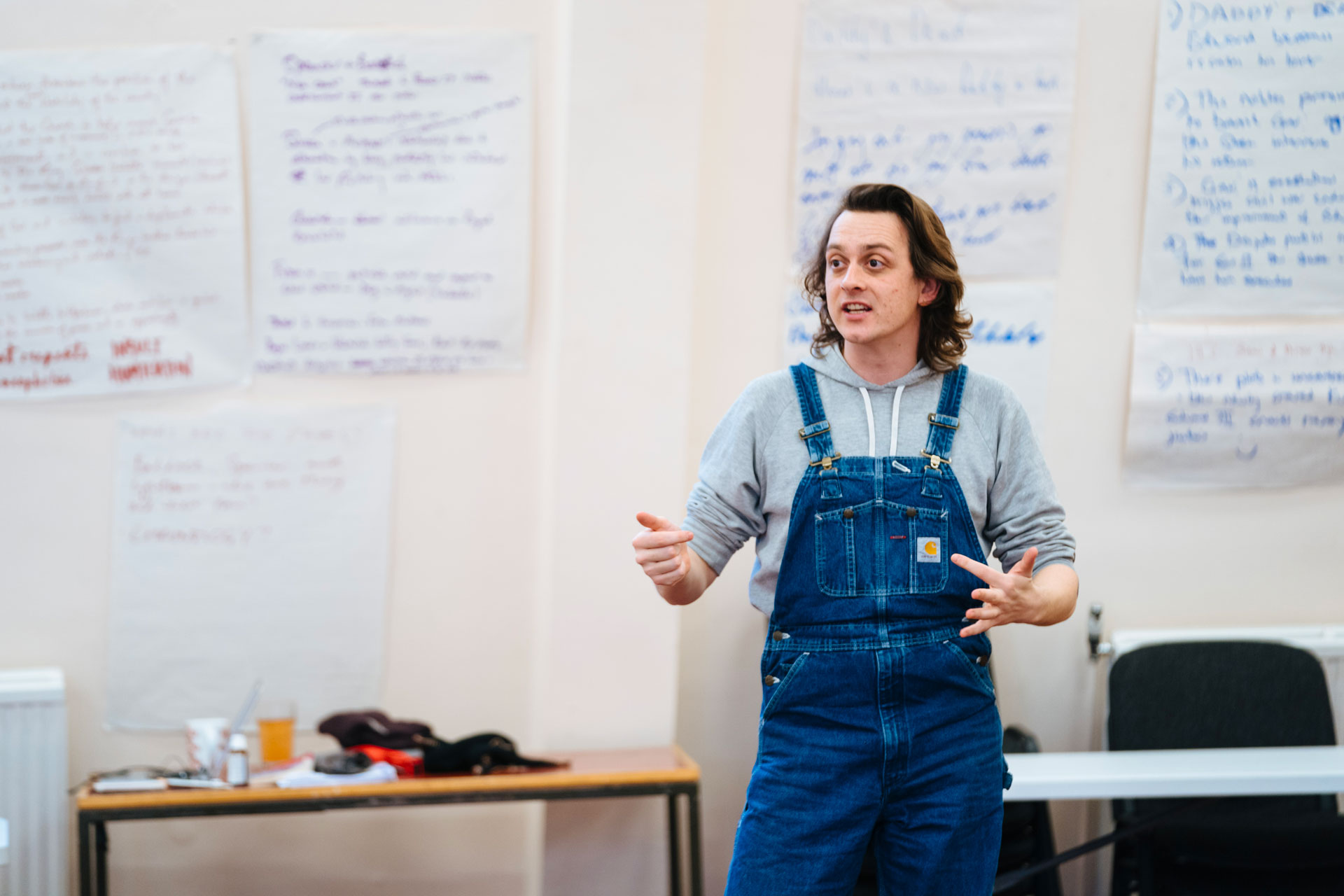
Daniel Raggett in the rehearsal room for the RSC’s Edward II © RSC, photos by Helen Murray
I even thought, maybe I should do Measure for Measure instead? Just because, will people accept it? And then I kept thinking more about it and realized: the thing we’ve lost in theatre is that we’ve confused presentation with endorsement. Just because you present something doesn’t mean you’re endorsing that point of view. What we should be fighting for, and what’s missing in a lot of these conversations, is nuance. The idea that experience isn’t monolithic. So I hope, if we’re doing anything, we’re pushing in the direction of presenting something more nuanced – something that opens up questions rather than presenting the Instagram Reel version of how a gay king should be portrayed.
At the same time, I do think there’s a reason why art should try to counter what is a very significant push to the right. There was a show I saw in Edinburgh – Dylan Mulvaney’s show, Fag Hag – and the whole thing was about her realization that maybe she went too far and shouldn’t have necessarily been the voice for all trans people and all women. The show ends with a brilliant conversation about nuance. And when I saw it, someone in the front row just went ‘ugh’ because they wanted something they could hang their hat on without complexity. There’s a very tribal instinct there.
And so we get a very complex Edward.
DE: I think – from my understanding as an actor – that what drives Edward is a fundamental need to be himself – authentically himself – in leadership and in life.
DR: Okay, my counter to that would be – yeah, isn’t that the problem? Isn’t that the problem with the world at the moment? There’s a cult of individualism, right? We’re all like, ‘It’s my truth, my life’ and actually, we’ve lost the ability to find consensus and community within that. We’ve become so fundamentally polarized and atomized because it’s all about self-definition.
In our desire for self-determination, we often end up defining and pigeonholing ourselves even more. Rather than just being, there’s a push to put ourselves in a particular category because it provides a sense of belonging. And while that can be helpful, it can also be limiting.
DE: In a way, that’s why the play is so compelling – it starts with a great problem.
DR: Right?! How does a gay king rule? And more specifically, a gay king who is absolutely determined to be his individualistic self. You can have sympathy for that, but then you see how he goes about it, and it’s disastrous.
DE: Well, that’s the thing. There are degrees of compromise. How far should one compromise? Should Edward have been allowed to keep his relationship but remain publicly closeted? What does that demand of him – and of his partner? He could have abdicated, like Edward VIII, and chosen personal happiness over duty. But Edward II is singular in his pursuit – though he does agree to Gaveston’s banishment, so he’s not entirely inflexible.
DR: I just think that’s a brilliant aspect of the play. It explores compromise – or the lack of it.
DE: Yes, and it raises the question: Can you be truly great at anything without compromise?
DR: Or without being fully yourself?
DE: I don’t think you can be a great leader without being true to who you are. Because leadership reveals you.
DR: But doesn’t compromise take different forms? For instance, I’ve sacrificed my personal life for my work in theatre. My friends are married with children; I’m single. That’s the trade-off, right, though I don’t regret it. That’s where compromise comes in – not in changing who I am, but in what I prioritize.
What’s it like staging the RSC version of Edward II – as a Royal Charter theatre company – essentially questioning monarchy while being part of an institution tied to it?
DE: It’s essential. Our in-house playwright, Shakespeare, wrote so many plays about the ancestors of our current monarchy. Edward II is, what, King Charles’ 19th great-grandfather? And Charles is a genuine scholar of Shakespeare. He even performed in plays at school and university. He’s very connected to the RSC – he supposedly attends performances unannounced. We’ve had the privilege of meeting him and seeing the First Folio owned by the palace.
DR: That connection to history is what I love. Our set design includes a replica of the Cosmati Pavement, commissioned by King Henry III. Every coronation since his has taken place on it, including Charles’. We’ve incorporated all the monarchs up to the present day in our design. Hopefully, Charles agrees when he comes to watch – particularly the scenes of Edward snogging another man!
I mean… On that note then, have there been any moments in rehearsal where you’ve thought, ‘This is magic’?
DE: After 14 years away from the stage, my first week felt like being Bambi on ice. But then there were moments where everything clicked.
DR: We’ve approached it like a new play, breaking it apart and rebuilding it. There have been tough moments, but that’s good – it means we’re being rigorous. And then you have these eureka moments where suddenly a line lands in a way you’ve never considered before. That’s what makes theatre thrilling—plays were meant to be performed, not just read. Sometimes, cutting or paraphrasing a line, as they likely did historically, makes it come alive in a way scholarly readings can’t.
DE: And the company is incredible – so generous and kind. That warmth balances out the loneliness and brutality of the play itself.
DR: Yes, and speaking of intimacy – we’re handling it in-house rather than bringing in an intimacy coordinator. We discussed it openly as the company and created structures for safety and trust. So far, it’s worked. These conversations in staging the RSC’s take on Edward II have been a fascinating experiment in leadership and collective decision-making.
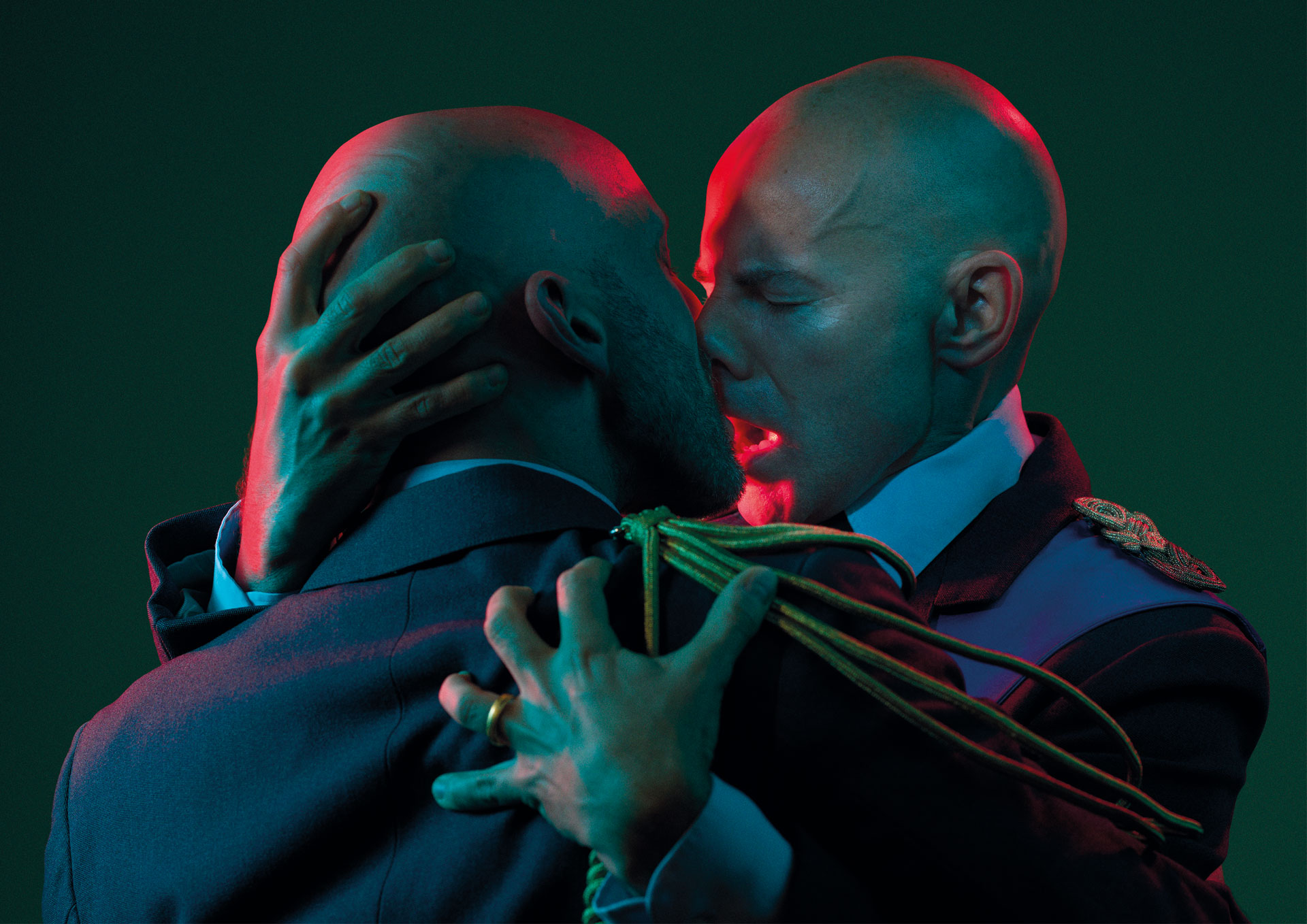
Official artwork for the RSC’s Edward II
Book Now
Opens today, rsc.org.uk


